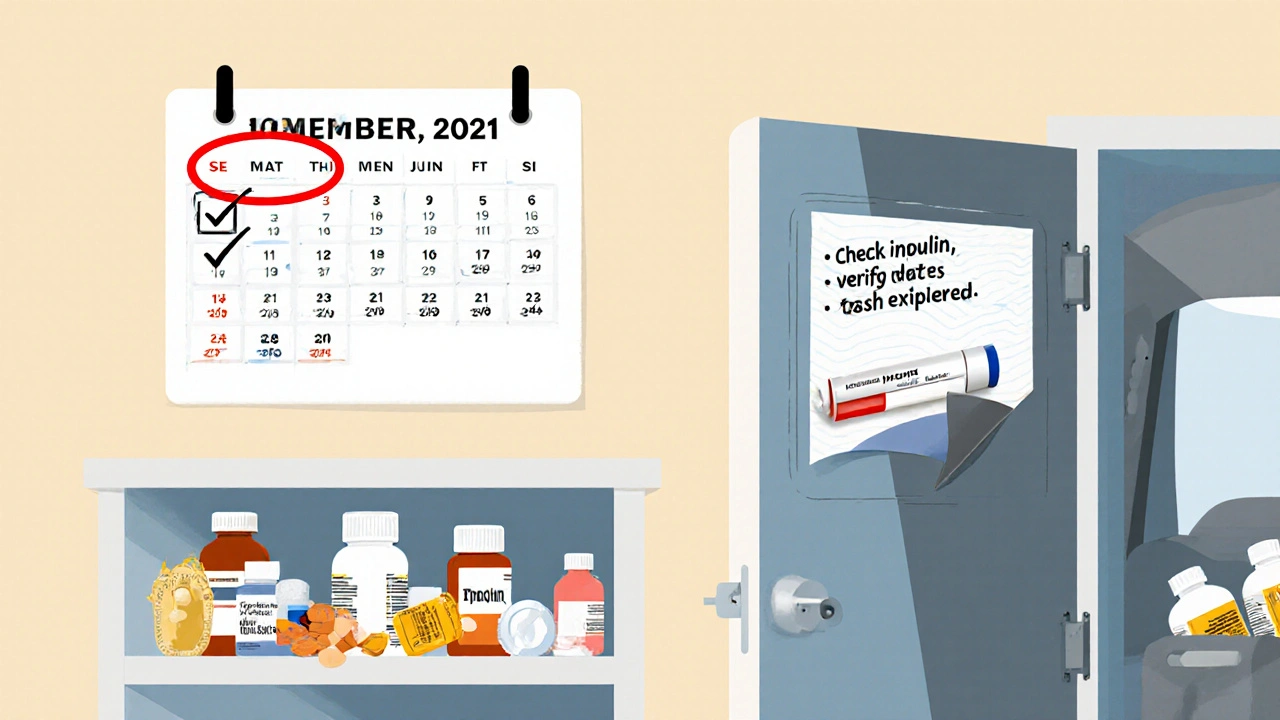Expiration Date Tracking: Keep Your Medications Safe and Effective
When you buy medicine, the expiration date, the last day the manufacturer guarantees the drug is fully potent and safe to use. Also known as use-by date, it’s not just a suggestion—it’s a safety line. That date isn’t random. It’s based on real testing: how the active ingredients break down over time under normal storage conditions. Take a pill past its expiration, and you might not get the full dose. Worse, some meds can break down into harmful substances.
Expiration date tracking isn’t just for pharmacies. It’s something every household with medicine needs to do. Think about that bottle of ibuprofen in your bathroom cabinet, or the antibiotic you saved after your last infection. Did you check the date? Most people don’t—until they need it. And that’s when they find out it’s been expired for six months. Expired medications, drugs past their labeled expiration date don’t always turn dangerous overnight, but their effectiveness drops. For critical drugs like insulin, epinephrine, or heart meds, even a small loss of potency can be life-threatening.
Good expiration date tracking, the practice of regularly checking and organizing medications by their expiration dates helps you avoid waste and risk. It’s not about hoarding pills or throwing out everything on time—it’s about knowing what you have, what’s still good, and what needs replacing. Pharmacies use this daily to manage pharmacy inventory, the system of tracking drug stock levels and expiration timelines. You can do the same at home. A simple shoebox labeled "Current Meds," with dates written on each bottle, goes a long way. Check it every six months. Toss what’s expired. Don’t wait for a refill to remind you.
And it’s not just about safety. The average household throws away over $300 worth of unused or expired meds each year. That’s money, and it’s also environmental waste. Proper medication safety, the set of practices ensuring drugs are stored, used, and disposed of correctly includes knowing when to discard, and how to do it right. Don’t flush pills unless the label says to. Many communities have drug take-back programs. If not, mix expired pills with coffee grounds or cat litter, seal them in a bag, and toss them in the trash.
You’ll find real examples below—like how grapefruit juice can turn a statin toxic, or why generic drugs sometimes fail because of manufacturing flaws. These aren’t just abstract risks. They’re tied to how you store, track, and use your meds. If you’re taking something for blood pressure, diabetes, or seizures, a drop in potency isn’t a minor issue. It’s a medical emergency waiting to happen. The posts here show you exactly how expiration date tracking connects to drug interactions, generic substitution risks, and even breastfeeding safety. No fluff. Just what you need to know to keep yourself and your family safe.
Learn how to create a simple, effective medication expiration review schedule to avoid using unsafe or ineffective drugs. Protect your health, save money, and reduce waste with practical steps and expert-backed tips.
Nov, 7 2025

